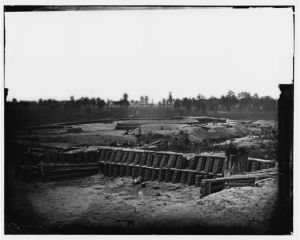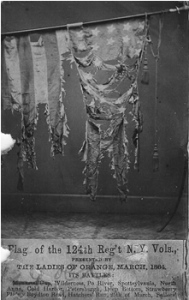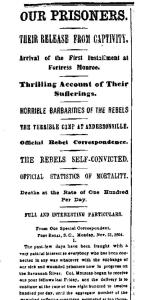
New York Times 11-26-1864
A local paper reprinted part of a very long report in the November 26, 1864 issue of The New-York Times that detailed the bad condition of exchanged Union soldiers.
From a Seneca County, New York newspaper on December 8, 1864:
THE HORRORS OF CAPTIVITY.
Terrible Condition of the Returned Union Prisoners.
The exchange of prisoners of war, recently agreed upon, is now in active progress. Several hundreds of Union officers have been released from captivity at Andersonville and other points in the far South, and put on board of transport steamers at Savannah, whence they are conveyed to Fortress Monroe. The exchanges are to continue until the Union prisoners held by the rebels are released, with the equivalent number of rebels in the hands of our Government.

NY Times 11-26-1864
A correspondent of the New York Times, who has had opportunities of conversation with the released prisoners, and has obtained access to the official documents of the rebel authorities who had them in charge during their long period of captivity, writes a long account of their sufferings to which they were subjected. With few exceptions the captives experienced outrageous barbarities at the hands of the rebels. They were shelterless, starved and half naked; crowded like cattle into small and filthy enclosures; deprived alike of the necessary comforts of life and the means of communicating with their friends; and, as the natural result of this inhuman treatment, a fearful mortality raged among them.
The Times correspondent thus describes the condition of our soldiers immediately after their transfer to the exchange boat at Venus Point, in the Savannah River: –
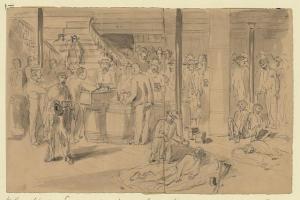
“Serving out rations (coffee, bread & meat) to the exchanged prisoners on board the New York” (Library of Congress)
“As soon as possible, barrels of hot coffee are prepared, and hams are cooked, and boxes of hard bread opened, for the refreshment of these men, to whom decent food has been for a long time unknown. It is a touching sight to see them, each with his quart can, file by the steaming coffee barrels, and receive their refreshing draught whose taste has long been unfamiliar. It seems scarcely possible that men should feel such childish joy as they express in once more receiving this common stimulant. And then, the eager, hungry glare which their glassy eyes cast upon the chunks of ham as they clutch and devour their allowance with a wolf-like avidity! These facts can only be understood by the spectator in remembering that for months they have been deprived of a sufficient quantity of palatable food, and that the little they have received has been rarely cooked, because, in a country abounding with fuel, and gloomy with intense pine forests, their jailors forbade the poor privilege of adequate fires. At the prison-pen near Millen, Georgia, for some weeks ther [sic] has been no meal or flour given to the prisoners, and the sweet potatoes issued in lieu thereof have been eaten raw, because there was no opportunity of getting fuel for cooking purposes.
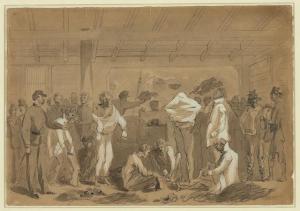
“Returned prisoners of war exchanging their rags for new clothing on board Flag of Truce boat New York” (Library of Congress)
“Such is the condition of the men whom we are now receiving out of chivalrous Dixie. These are the sons, brothers, husbands [?] fathers of the North. Men reduced to living skeletons; men almost naked; shoeless men, shirtless men; men with no other garment than an overcoat; men whose skins are blackened by dirt and hang on their protruding bones loosely as bark on a tree; men whose very presence is simply disgusting, exhaling an odor so fetid that it almost stops the breath of those unaccustomed to it, and causes an involuntary brushing of the garments if with them there is an accidental contact.
“Remember, too, that the men thus returned are the best specimens of the suffering. Only those are forwarded to us whom the rebel medical authorities decide to be strong enough to bear the fatigue of transportation. If those whose wretchedness I have vainly endeavored to portray are the best specimens of our sick and wounded, is it not awful to contemplate what must be the woe of the remainder?
![Andersonville Prison, Ga., August 17, 1864. South-east view of stockade ( photographed 1864, [printed between 1880 and 1889]; LOC: C-DIG-ppmsca-33768)](https://www.bluegrayreview.com/wp-content/uploads/2014/11/33768r-300x186.jpg)
“Andersonville Prison, Ga., August 17, 1864. South-east view of stockade” (Library of Congress)
“Men in the last stages of emaciation from chronic diarrhea received no nourishment whatever while in captivity, and starved to death on the coarse rations which the stomach of a strong man would reject. – Others, suffering from gangrene and ulcers, were compelled to fester in putridity without even sufficient water to cleanse their loathsome sores. Week after week the diseased and dying were kept without shelter, and many of them without clothing, on the bare ground, exposed to a torrid sun by day and to heavy rains at all times, in total disregard of the earnest and almost despairing of kind-hearted physicians for their relief. It is very easy to understand how much of this terrible wretchedness was unavoidable, particularly that part of it which proceeded from a scarcity of medicines, but it requires a very ingenious mind to palliate in any degree the heartlessness which allowed the sufferers to remain shelterless in a country where the materials for shelter are so abundant as in the South, and where thousands of willing hands from the prisoners in the stockade would have furnished all the labor. [“?]
Copies of thirty-six official rebel documents are given, from which it appears that some of the rebel surgeons, moved by feelings of humanity, repeatedly remonstrated with the authorities against the ill-treatment of the prisoners, but apparently without effect. The reports of these physicians, to whom is due the credit of an effort to relieve the sufferers, go to convict the rebels of inhuman barbarities, even if there were no corroborative evidence.
![Exchanged (Union) Prisoners on board the liza Hancox [sic] (Colonel Mulford) Despatch boat--Cheering the Stars & Stripes (by Alfred R. Waud. November 18, 1864; LOC: LC-DIG-ppmsca-21412)](https://www.bluegrayreview.com/wp-content/uploads/2014/11/21412r.jpg)
“Exchanged (Union) Prisoners on board the liza Hancox [sic] (Colonel Mulford) Despatch boat–Cheering the Stars & Stripes” (11-18-1864) (Library of Congress)
The Times devoted the entire first page on November 26th to the prisoner article (even on the day after some Confederates tried to burn New York). It appears from the upper right column in this post that the excerpts in the Seneca County newspaper were accurate.
You can read more about the returned prisoners in the December 10, 1864 issue of Harper’s Weekly at Son of the South.
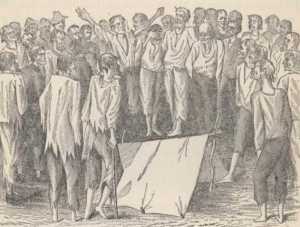
from ANDERSONVILLE, By John McElroy, v2 (at Project Gutenberg)
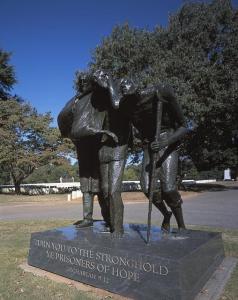
“Monument to Prisoners of War, Andersonville Prison, Georgia” (Library of Congress)
___________________________________________________________________
___________________________________________________________________
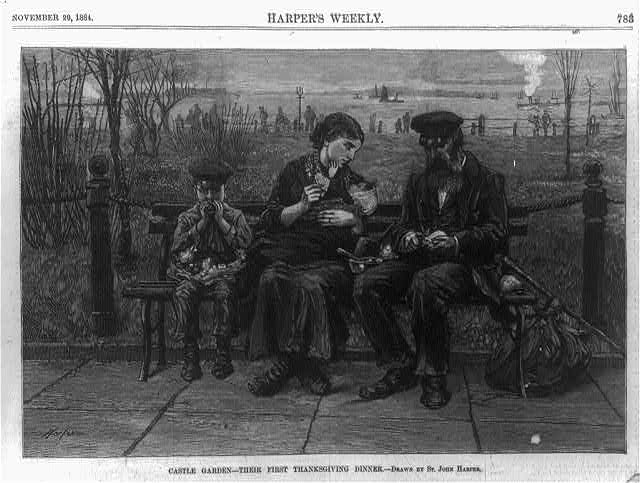
Their First Thanksgiving (Harper’s Weekly, 11-20-1884)

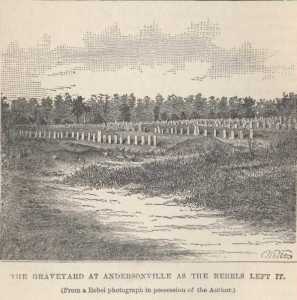


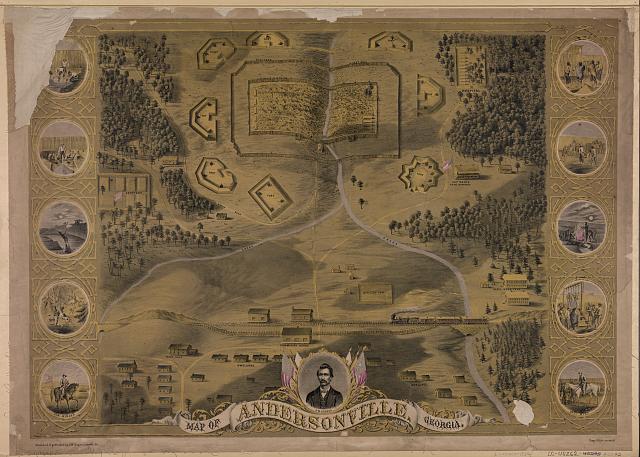
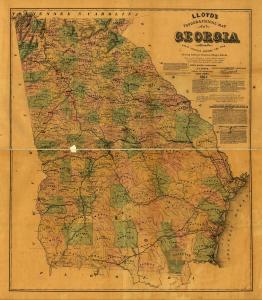




![Andersonville Prison, Ga., August 17, 1864. South-east view of stockade ( photographed 1864, [printed between 1880 and 1889]; LOC: C-DIG-ppmsca-33768)](https://www.bluegrayreview.com/wp-content/uploads/2014/11/33768r-300x186.jpg)
![Exchanged (Union) Prisoners on board the liza Hancox [sic] (Colonel Mulford) Despatch boat--Cheering the Stars & Stripes (by Alfred R. Waud. November 18, 1864; LOC: LC-DIG-ppmsca-21412)](https://www.bluegrayreview.com/wp-content/uploads/2014/11/21412r.jpg)



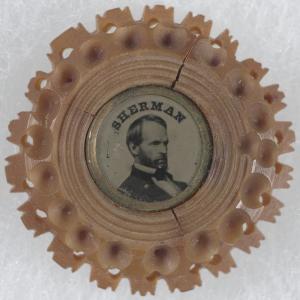
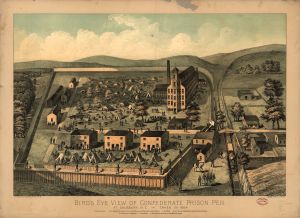
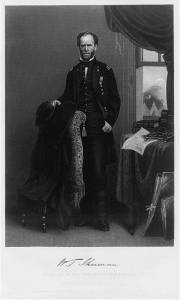
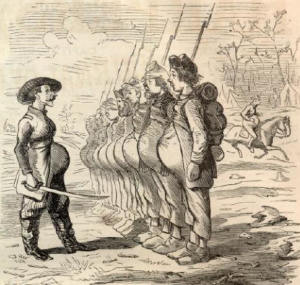
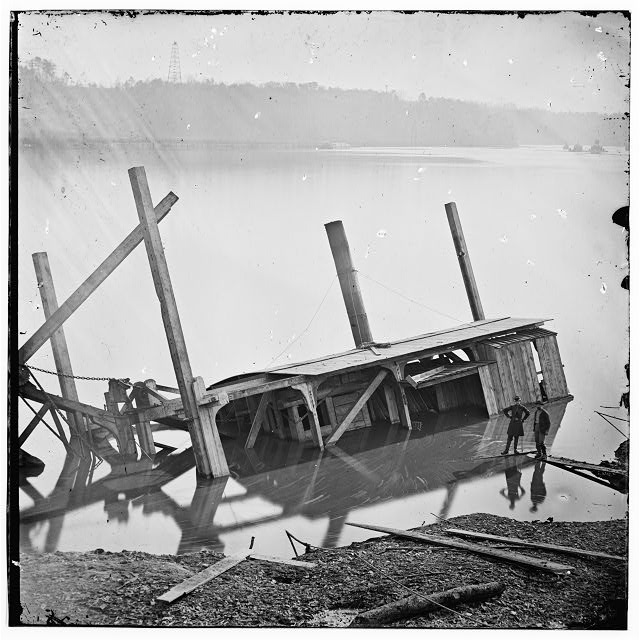
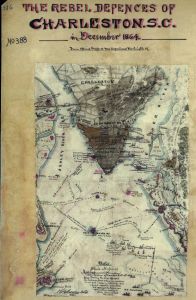
![View of Charleston, South Carolina (photographed between 1861 and 1865, printed between 1880 and 1889]; LOC: LC-DIG-ppmsca-34950)](https://www.bluegrayreview.com/wp-content/uploads/2014/11/34950r-300x239.jpg)
![Civil War envelope showing American flag flying high over a burning Fort Sumter with message "Remember Fort Sumter! (between 1861 and 1865]; LOC: LC-DIG-ppmsca-31709)](https://www.bluegrayreview.com/wp-content/uploads/2014/11/31709r.jpg)
